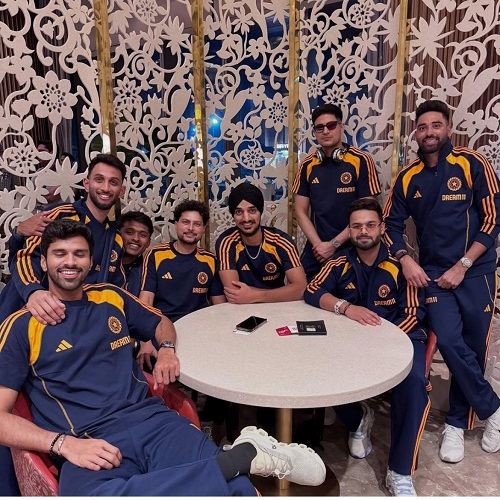Follow Us
- Gandhi’s Swaraj and a Century of an Organisation
- Bareilly on High Alert for Friday Prayers, Police Deployed
- Uddhav Thackeray Compares BJP to Amoeba, Says Fighting for Justice is Becoming Treason In India
- Philippines earthquake death toll reaches 70
- Congress attacks PM Modi for backing Trump’s Gaza plan
Gandhi’s Swaraj and a Century of an Organisation
These days, an organization is celebrating its centenary. As it marks this milestone, its ideology holds sway in the government. No matter how much the organization tries to shape its narrative, memories linger.
Memories that this organisation rejected the tricolor, found the Constitution unacceptable, and opposed a Dalit thinker leading the Constitution Drafting Committee.
Notably, this organisation was founded on Vijayadashami, the same day Babasaheb Ambedkar embraced Buddhism.
The organisation has its own ideological framework. Its founders believed that diverse cultural and religious philosophies cannot form a single nation, akin to the German dictator of that era who couldn’t tolerate Jews and Germans coexisting.
Here, it’s not just about religion. The organisation holds that only those speaking languages derived from Sanskrit have a rightful claim to this land, with a stronger affinity to the "fatherland" than the "motherland," dismissing feminine perspectives.
This ideology created an environment where the vibrant proponent of Swaraj met a tragic end. Even now, efforts to render that figure irrelevant persist—his glasses are used as a symbol for Swachh Bharat, but social media comments from the organization’s so-called fringe reveal their disdain, portraying the Swaraj advocate as Ravana, targeted with arrows.
Such rhetoric leads innocent schoolchildren to cheer scenes of his assassination with three bullets. Statues of the assassin are now being erected.
This evokes no regret, for globally, this proponent’s nonviolent struggle against racial authoritarianism and economic-political slavery has inspired collective consciousness.
Bitterness and enslavement have been transcended, ensuring his immortality. India’s grace didn’t depend on that path alone; like the Buddhist way, his followers have spread to every corner. We may forget, but they endure.
The real question is: Why does this proponent trouble them? A 78-year-old would eventually pass, but his dream of Swaraj remains terrifying to those who wish to keep the masses chained.
He taught farmers, laborers, and women to question, to organise, to understand that Swaraj means equitable resource distribution, equality, liberation from caste, and gender justice.
How could status-quoists accept this? His campaign against social untouchability shook them. How could they tolerate the erosion of their social dominance? The first blow against him came when he travelled across the country fighting untouchability.
His vision of Ram Rajya was evident in the Sabarmati Ashram’s system, where a Dalit family was entrusted with the kitchen. When residents began to leave, he calmly said they could go, funding could stop, but even if only he and that family remained, his resolve wouldn’t waver. This strength is what Gandhi represents—not the work of the weak.
This ideology finds Swaraj’s path troubling. It stands firm against the arrogance of untruthful regimes and attempts to impose slavery. That’s why this proponent sought not just independence but Swaraj, so the common person could practice Satyagraha against even an elected government.
Swaraj isn’t confined to representation; it’s a medium for equal participation. If a tribal, Dalit, or minority gets an opportunity, it’s a start. But we must ask if the caste hierarchy has been challenged, or if it’s merely a ploy to seat compliant status-quoists.
In Swaraj, there’s no room for fear.
Doors and windows remain open for noble ideas. Even while nurturing roots, one doesn’t become rigid. In contrast, fear-based systems draw lines between “us” and “them,” crafting political-social narratives to gain power easily.
But in such an environment, love, fraternity, justice, and rights cannot survive. This year, October 2 coincides with Dussehra.
Call it the wheel of time, perhaps.
Why would someone who breathed his last chanting Ram’s name envision Ram Rajya? Ram’s journey challenged the greed and fear-based dominance of Lanka’s golden city. His life partner was found by a plow-wielding king, not a billionaire hosting a multi-billion wedding.
His foreign policy wasn’t about aiding a business tycoon’s global expansion. His friends were Sugriva and the vanaras.The Ramayana doesn’t speak of Ayodhya’s grandeur. When Ram chased a golden deer, liberation slipped away, leading to captivity and new struggles.
In Ayodhya’s Ram Rajya, locks were unnecessary—people’s hearts were open, fearless. But when narrow-mindedness crept in diligence collapsed.
The story shows that Swaraj demands daily vigilance. It’s not static; its movement is subtle, its struggle ongoing.
A moment’s lapse leads to slavery.
Over a century, the organization has polished its rhetoric and principles superficially, but its language of power remains unchanged. Under the guise of “good governance,” it strives to maintain the dominance of the privileged. Yet, Gandhi’s path remains unaffected. It will continue to illuminate humanity.
(Reference: We and Our Nationhood Defined, M.S. Golwalkar, pp. 83–98, original edition)
Uddhav Thackeray Compares BJP to Amoeba, Says Fighting for Justice is Becoming Treason In India
'RSS Activities a Threat To Nation', Congress Targets PM Modi Citing Sardar Patel's Letter
No action for Hanuman Chalisa at police station but jail for Muhammad poster: Imran Masood
Leh Violence: BJP Government Shot Dead 'Brave Son' Whose Blood Runs with Patriotism,Says Rahul Gandhi
BJP Spokes Person's Death Threat To Rahul Gandhi: Congress Says Remarks Calculated And Heinous
-
.jpg)
Bareilly on High Alert for Friday Prayers, Police Deployed -
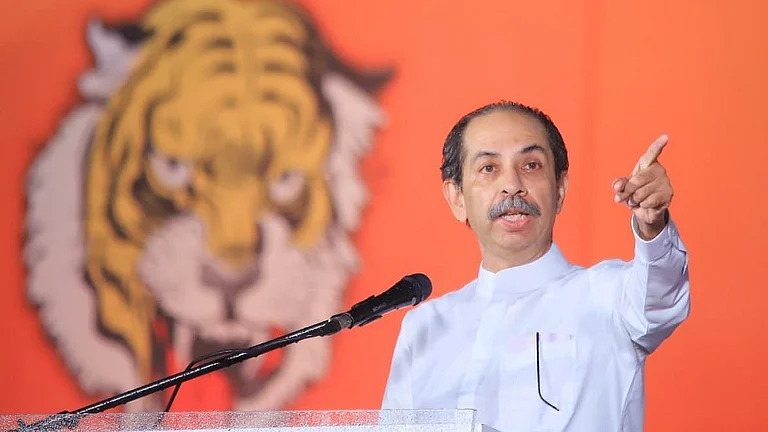
Uddhav Thackeray Compares BJP to Amoeba, Says Fighting for Justice is Becoming Treason In India -
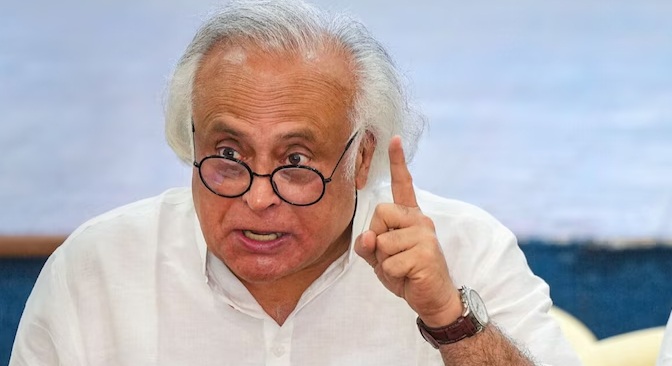
'RSS Activities a Threat To Nation', Congress Targets PM Modi Citing Sardar Patel's Letter -
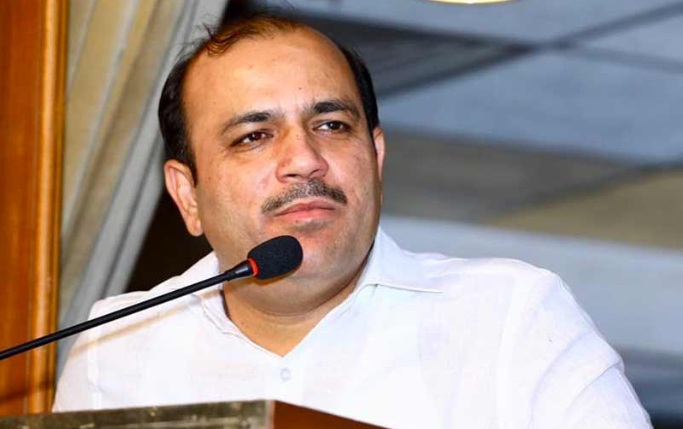
Yogi Government is Following Repressive Policies: Former MP Danish Ali -
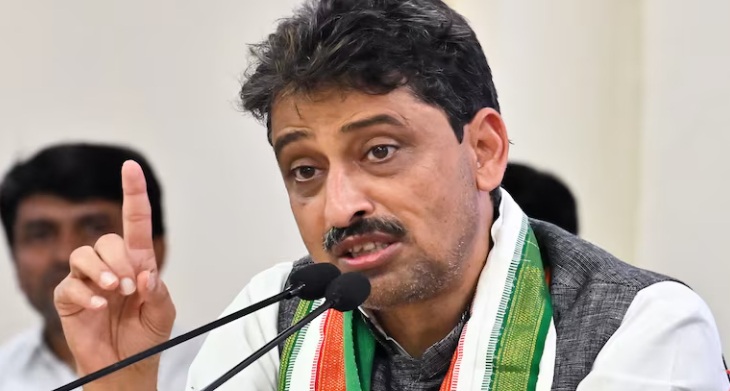
No action for Hanuman Chalisa at police station but jail for Muhammad poster: Imran Masood -
.jpg)
BJP Spokes Person's Death Threat To Rahul Gandhi: Congress Says Remarks Calculated And Heinous -

Congress condemns the DEATH THREAT issued to Rahul Gandhi on live television by BJP spokesperson -
 (1).jpg)
Countdown to End Modi Government's 'Corrupt Rule' Begins : Kharge at CWC Meeting -
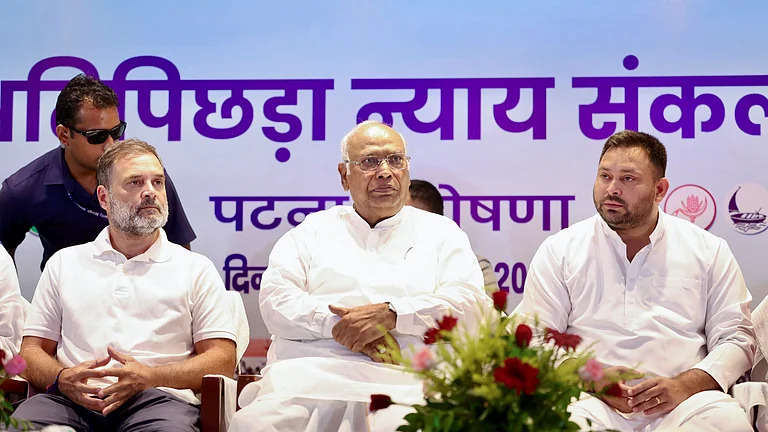
Rahul-Tejashwi Releases 'Extremely Backward Cast' Justice Manifesto in Patna -
.jpg)
Jairam Ramesh recalls 1940 Working Committee meeting, takes dig at RSS! -
 (2).jpg)
'Vote Chori' is being carried out in a planned manner in the country : Jairam Ramesh in Patna CWC Meeting -
.jpg)
PM must take responsibility for 8 years of ‘loot’, answer why he opposed GST as Gujarat CM: Congress -

UK, Australia, Canada recognise State of Palestine -
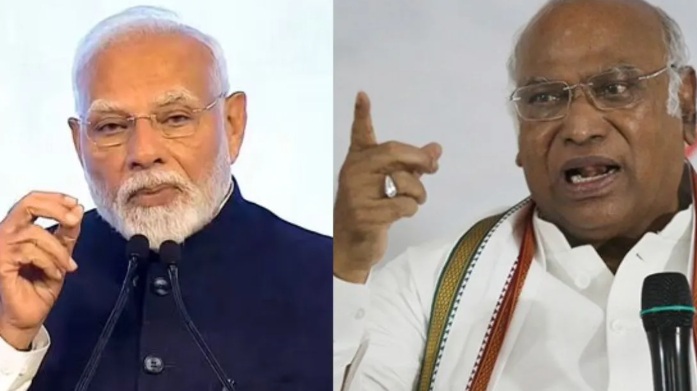
Congress Slams PM Modi Over His Address On GST,Says Cat Set Off for Hajj Pilgrimage After Eating Nine Hundred Rats -

Rahul writes to PM Modi on Punjab floods


-
 Yogi Government is Following Repressive Policies: Former MP Danish Ali
Yogi Government is Following Repressive Policies: Former MP Danish Ali No action for Hanuman Chalisa at police station but jail for Muhammad poster: Imran Masood
No action for Hanuman Chalisa at police station but jail for Muhammad poster: Imran Masood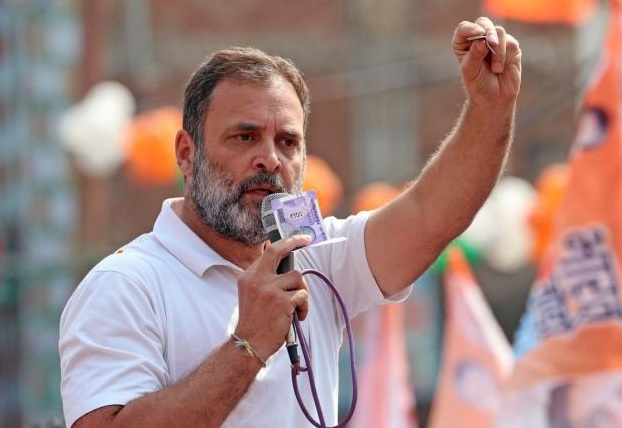 Leh Violence: BJP Government Shot Dead 'Brave Son' Whose Blood Runs with Patriotism,Says Rahul Gandhi
Leh Violence: BJP Government Shot Dead 'Brave Son' Whose Blood Runs with Patriotism,Says Rahul Gandhi.jpg) BJP Spokes Person's Death Threat To Rahul Gandhi: Congress Says Remarks Calculated And Heinous
BJP Spokes Person's Death Threat To Rahul Gandhi: Congress Says Remarks Calculated And Heinous -
 Congress condemns the DEATH THREAT issued to Rahul Gandhi on live television by BJP spokesperson
Congress condemns the DEATH THREAT issued to Rahul Gandhi on live television by BJP spokesperson.jpg) Big Shock to Tata Motors! 21,000 Crore Could Sink in Minutes
Big Shock to Tata Motors! 21,000 Crore Could Sink in Minutes.jpg) Dispute Over Sanjay Kapoor's 30,000 Crore Prperty Refuses to Die Down, Priya Sachdev Approaches HC
Dispute Over Sanjay Kapoor's 30,000 Crore Prperty Refuses to Die Down, Priya Sachdev Approaches HC (1).jpg) Countdown to End Modi Government's 'Corrupt Rule' Begins : Kharge at CWC Meeting
Countdown to End Modi Government's 'Corrupt Rule' Begins : Kharge at CWC Meeting -
.jpg) Bulldozers for Dalits and the Poor ; Free Land for Adani, This is the Gujarat Model: Rahul Gandhi
Bulldozers for Dalits and the Poor ; Free Land for Adani, This is the Gujarat Model: Rahul Gandhi (1).jpg) Govt of stolen mandate has no legitimacy: Congress at CWC meet
Govt of stolen mandate has no legitimacy: Congress at CWC meet Rahul-Tejashwi Releases 'Extremely Backward Cast' Justice Manifesto in Patna
Rahul-Tejashwi Releases 'Extremely Backward Cast' Justice Manifesto in Patna (2).jpg) 'Vote Chori' is being carried out in a planned manner in the country : Jairam Ramesh in Patna CWC Meeting
'Vote Chori' is being carried out in a planned manner in the country : Jairam Ramesh in Patna CWC Meeting



.jpg)
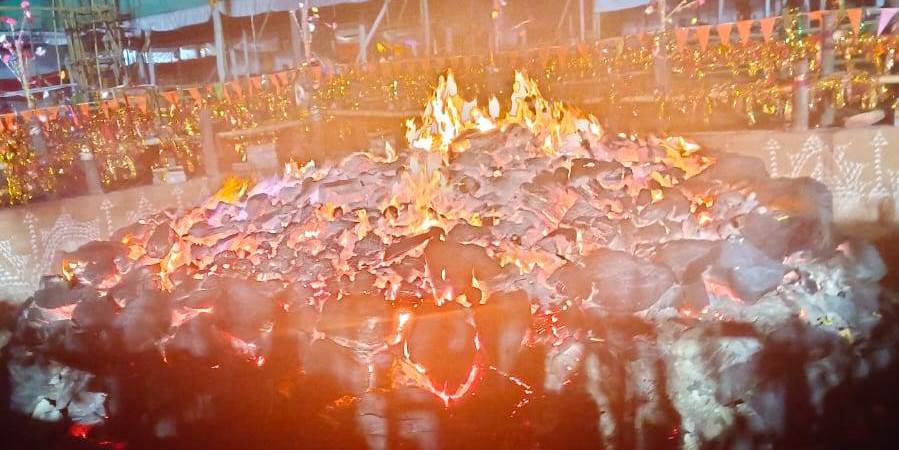

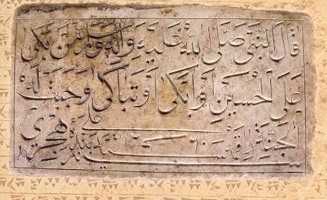
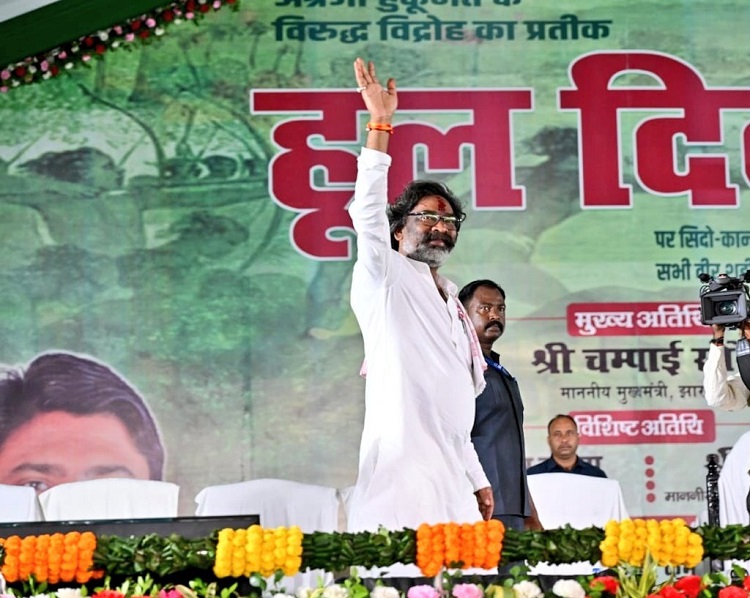
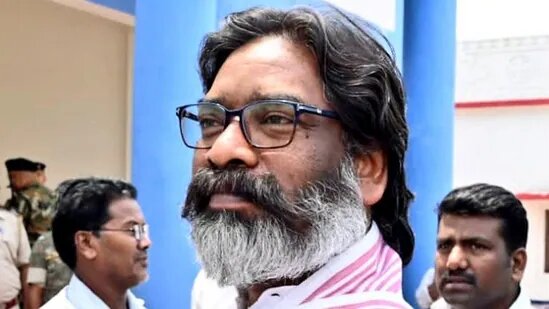




.jpg)

